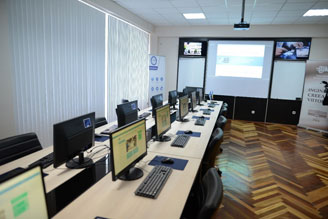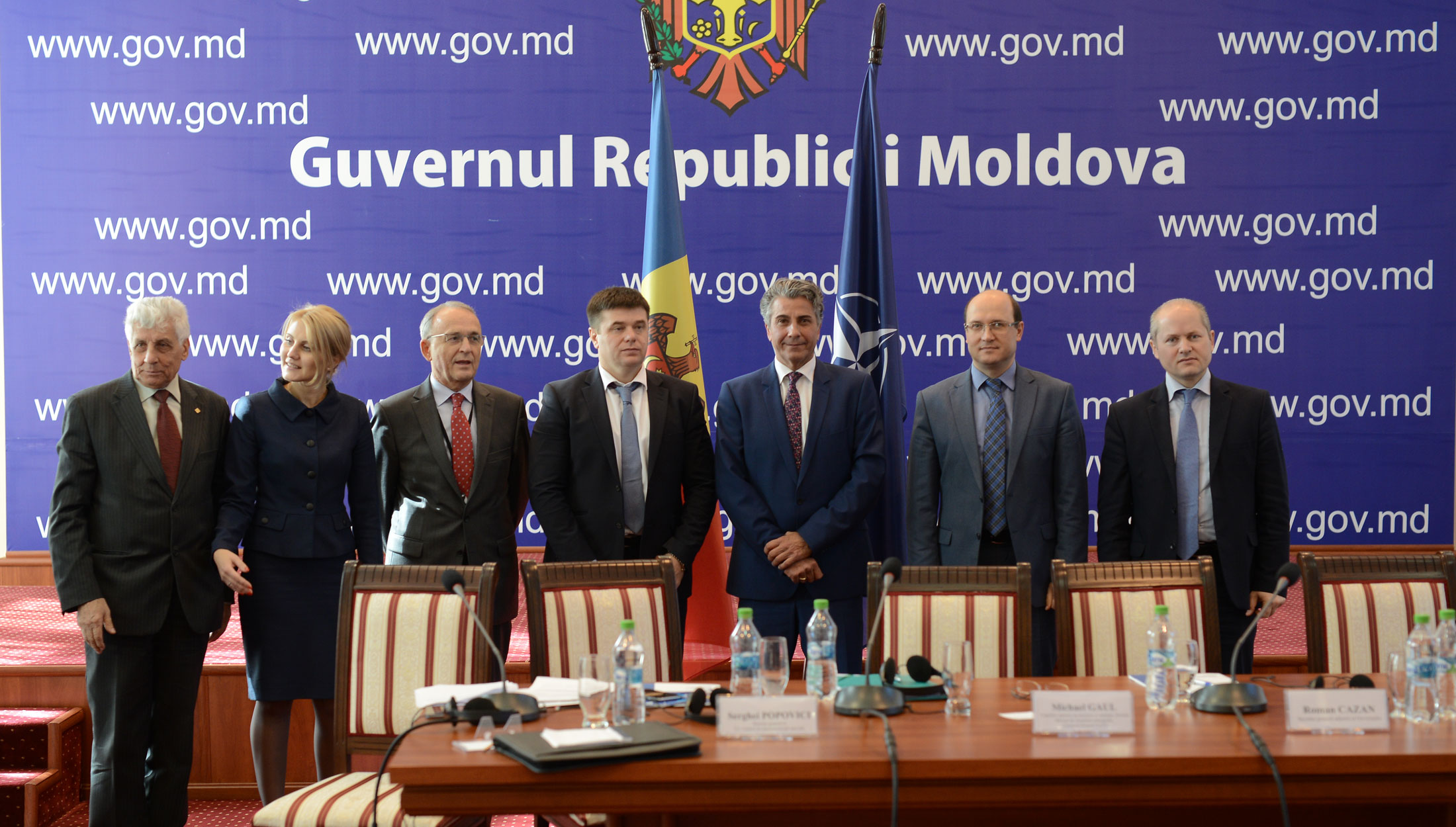Concrete steps to boost Moldova’s defence capacities
Three projects aiming to build Moldova’s defence capacities were launched on 6 October 2016. Two projects concern cyber defence and the third seeks to promote the role of women. Developed within the NATO Science for Peace and Security Programme, the projects support implementation of the Defence and Related Security Capacity Building Initiative for Moldova.

Official ribbon-cutting ceremony inaugurates a cyber defence laboratory at the Technical University of Moldova.
Cyber defence laboratory
The first project is related to the launch of the e-Research and Education Laboratory for Cyber Defence at the Moldova Technical University. “The cyber environment provides us with great opportunities, but it is also connected with serious threats,” emphasised Valentin Amariei, Vice Rector.
Serghei Popovici, General Director of the Center for Special Telecommunications, added that “the lab will have a major impact on the defence sector of Moldova as it represents a common space where participants can obtain capabilities to respond to current threats”. The launch of this high-end laboratory will benefit both system administrators from the public sector as well as students from the Technical University of Moldova.
The project is supported by NATO, the embassies of Estonia and the United States as well as national institutions involved in the project.
Computer Emergency Response Team

The second project relates to the creation of a Computer Emergency Response Team (CERT) at the Moldovan Ministry of Defence, which will be an instrument for efficient counteracting of various cyber threats and vulnerabilities.
The aim is to enhance the cyber defence capabilities and the protection of the military critical infrastructure, through the provision of equipment and software as well as by sharing best practices, capacity-building and policies.
Ian Davies, Principal Scientist at the NATO Communications and Information Agency, explained that hundreds of millions attacks are detected every day in NATO’s cyberspace. However, they can be drastically reduced using sophisticated technologies. “It is the experience we have gained in building and operating the NATO Computer Incident Response Capability that we are sharing with the Moldovan MoD and General Staff to support the development of their computer incident response capability,” he explained.
Promoting the role of women in peace and security
The third project focuses on assisting the Moldovan government and civil society to develop a National Strategy for the implementation of United Nations Security Council Resolution (UNSCR) 1325 and related Resolutions on Women, Peace and Security.
“Such projects create platforms between the government and civil society,” emphasised Elena Marzac, Executive Director of the Information and Documentation Centre on NATO in Moldova, which will support project implementation along the Ministry of Defence and the US-based Inclusive Security Institute (ISI). In the long run, the project is expected to strengthen the role of women in Moldovan society.
Cooperation between Moldova and NATO

The Moldovan government hosted an event to mark the launch of the three new projects. It was attended by senior officials from the State Chancellery, foreign diplomats, NATO delegates, representatives of national institutions and the Technical University of Moldova, as well as press and media.
Roman Cazan, Deputy Secretary General of the Government of the Republic of Moldova, welcomed NATO’s strengthened cooperation with Moldovan stakeholders.
Michael Gaul, Senior Advisor in NATO’s Emerging Security Challenges Division, underlined that “these projects will further enhance the cooperation between Moldova and NATO, will be significant in strengthening Moldova’s defence and security sectors and will have a value beyond defence by positively impacting capabilities of the young generation and the Moldovan society at large”.
Emil Druc, Head of Multilateral Cooperation Department at the Ministry of Foreign Affairs and European Integration stressed that “the launch of those three projects represents a practical advantage of cooperation between NATO and Moldova and is of national importance”.
